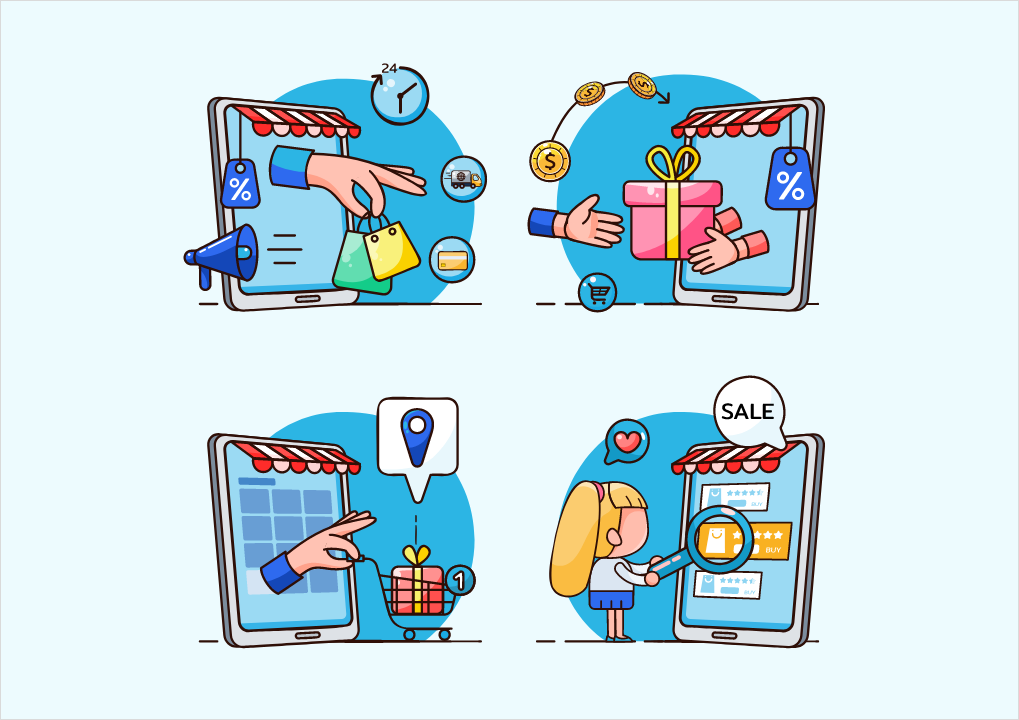Well, kind of an obvious answer to that headline, ain’t it? But hey, let’s not settle down right away. First, let’s dig in a little deeper. Recently, we’ve been seeing a lot of Google Shoppings’ controversial updates, and how they will absolutely affect our whole ad strategy in general. However, most of these new implementations in general revolved around content policies, and the actions that will be taken against those who decide to ignore them and just do (and advertise) whatever they want. But now, Google has decided to take one step forward.
According to the announcement that they disclosed on July 21st, their policies will no longer just take prevention actions towards publishers who break their rules but also will reward accounts that actually go a little out of their way to make them happy. Just as they did with ads placed in Google’s stories, they will now give benefits to users that advertise products labeled as “deals” or “sale”.
Their announcement gives a detailed pitch on how awesome this will be both for merchants and for consumers, that now will be able to find each other much easier. Basically, the idea is to help people searching for discounts (as they said themselves, searches for “discount code” have increased 50% since last year) find brands and merchants looking to sell their products at competitive prices and with discounts or promotions of some kind. Basically, instead of having their discount-searchers (like me!) browsing through one thousand pages, they will help them by prioritizing the results of products that are actually labeled as “deals”.
So far so great, isn’t it? But of course, there’s always a bit more to look into than just what Google lists as their very pure and transparent reasons. So let’s talk from the merchant’s point of view. As the announcement itself says, this will not only help publishers get “closer” to users but also has a bunch more benefits. For starters, Google Shopping became free for merchants ever since last year, and now their promotions and deals will appear on the top top of results if they go on a sale or have some discounts. So basically these updates mean that businesses will have an incredible opportunity to move inventory, get more sales, attract new customers and, eventually, build brand loyalty during important shopping events and peak holiday season when, beginning in October, people shopping on Google Search will be able to swipe through and discover the most popular deals for major retail sales moments like Black Friday and Cyber Monday.
But wait, didn’t Google already reward another type of advertisers? Yes, they absolutely did. Even though Google moves in mysterious ways (pun intended), there are some things that we can be almost certain of (so we can avoid the theoretical analysis on, for example, Google Ads accounts getting banned), and one of them is that, the higher you bid, the more rewarded by Google you’ll get. So the more you pay for clicks on your ads, the higher you’ll appear in Google’s search results, right? But wait, if every single merchant that publishes a deal will be rewarded by being shown higher in the results, then where’s the criteria for the actual order of results? Easy, pay more, appear higher. Tricky move, ain’t it?
Now let’s say I want to buy some cool jeans for the spring season coming ahead, so I go to Google looking for great deals to get them at a price that works for me. So I go and search for “Mom blue jeans at a discount”, and a ton of results come up because obviously mom jeans are everywhere now, and there are a lot of brands doing sales. My first impression will probably be super positive, and I’ll be happy to see that the very first results that Google shows me are products labeled as deals, and that actually have really good prices. However, as I continue going down the page, I may notice that some of the jeans listed below actually have even better prices. So what’s going on? Why’s Google trying to get me to buy more expensive jeans than I want to? Well, because those brands pay them more money.
So basically, even though Google writes down a whole user-experience-improvement spectacle, there is always a quite wide distance between what they call to be their reasons, and what actually ends up happening. In this case, well, yes it will be an improvement to have a bunch of deals listed as the first results I get, but given that that list will always depend on how much does every brand pay to get there, then how sure can we be that this list will actually be the best we can find?
And I don’t mean to be naive and be all about how Google should only care about getting me the cheapest mom jeans in the market. I understand that they, just as any other business, have to make earnings a priority in order to keep working. But this announcement just seemed too much for me. From the very beginning, they go all about “building bridges” and “creating real connections” between brands and users, but then there always are a thousand other factors to take into consideration when it comes to who they choose to show first in their search results.
So, to conclude, I guess my point here is quite simple: Will this new update improve users’ experience? Definitely. But are Google’s intentions all about always doing what’s best for their users and publishers? Well hopefully, this article has answered this question.






